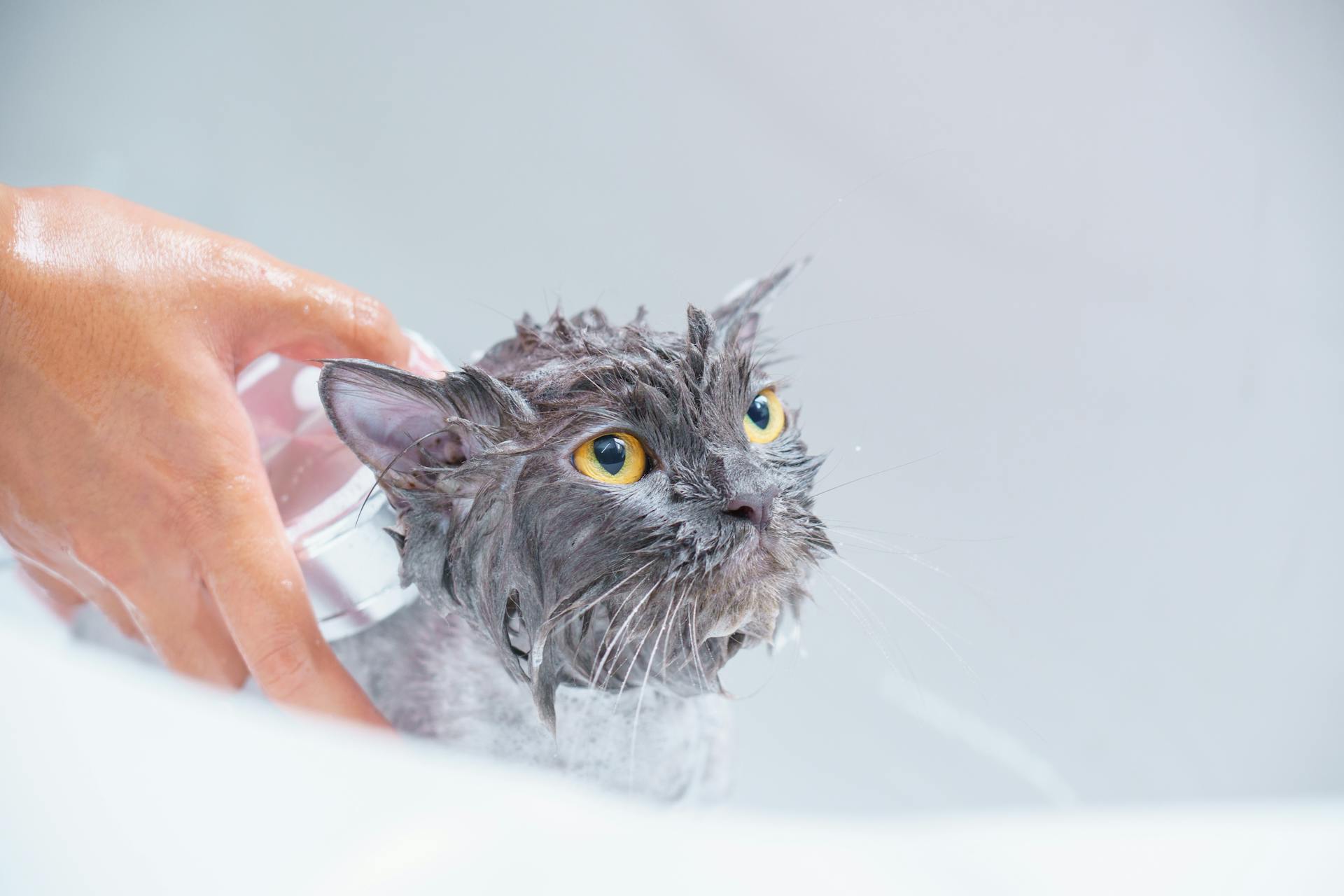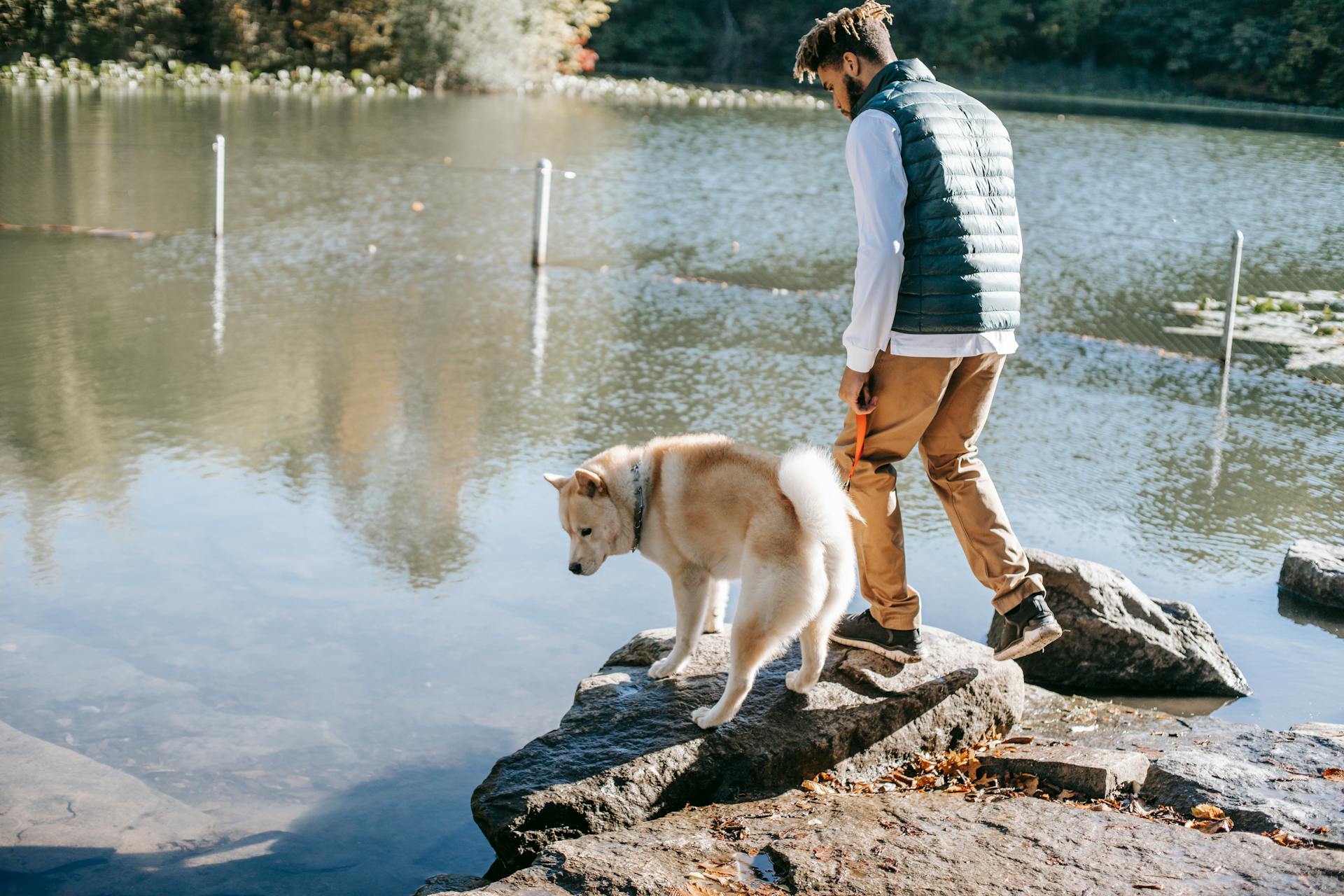
House soiling discipline for dogs that need help requires patience and consistency. It's essential to establish a routine for taking your dog outside to eliminate.
Dogs need to go out to the bathroom at least 4-6 times a day, especially after meals and naps. This frequency can vary depending on age, breed, and individual characteristics.
Some dogs may not have the physical ability to hold their bladder or bowels, such as older dogs or those with medical conditions. These dogs need more frequent potty breaks to prevent accidents.
Accidents can happen even with the best intentions, so don't scold or punish your dog for mistakes.
Causes of House Soiling
Dogs may start relieving themselves indoors due to a health issue or a change in their routine, diet, or home environment.
If your dog keeps pooping in the house, it's essential to rule out a medical reason by making an appointment to see your veterinarian.
Dogs can't tell you how they're feeling, so they use other methods, like pooping on the carpet, to let you know something may not be right.
Changes in their diet, such as a new food or treats, can cause house soiling in dogs.
Your dog may be experiencing gastrointestinal issues or other health problems that require veterinary attention.
It's not uncommon for dogs to poop in the house due to changes in their home environment, such as moving to a new home or changes in the household dynamics.
Correcting Mistakes
It's essential to address the issue of pooping in the house as soon as possible to prevent it from becoming a habit. Puppies may take a while to pick things up, and it's not necessarily due to lack of training.
A visit to the vet can confirm if your dog is experiencing a medical or age-related condition. If it's caused by one of these, the vet can advise on the best course of action or possibly prescribe medicine.
Recommended read: Vet Dogs Dog Treats
Creating a schedule to encourage pooping outside and not inside is crucial. As dogs age or household routines change, it may be easy to forget how essential a schedule is to a dog.
To increase potty time, bring your dog outside more often throughout the day. This will signal to them to go outdoors instead of in.
Accidents can happen, but it's essential to clean up the messes right away. Use an effective enzyme cleaning product that removes pet stains and neutralizes the odor.
Here are some steps to correct mistakes:
- Rule out age or medical reasons.
- Use a schedule to encourage pooping outside.
- Increase potty time.
- Clean up the messes right away.
- Use training items, such as pee pads or indoor artificial turf grass potty pads, as a last resort.
Remember, puppies are sensitive to human emotions and can make out when we are happy or sad or angry. Verbal praise is an excellent way to encourage good behavior and reinforce positive associations with peeing and pooping in the right spot.
Housebreaking Strategies
Getting to the source of the problem is key to solving the pooping mystery. Rule out age or medical reasons by visiting the vet, as these conditions can be easily overlooked.
Use a schedule to encourage pooping outside and not inside. Create a consistent routine and stick to it, as dogs thrive on predictability. A schedule can be especially helpful when household routines change.
Increase potty time by bringing your dog outside more often throughout the day. This signals to them that the outdoors is the best place to go. A safe, quiet place outside can also help reduce dog anxiety.
Here are some strategies to help you get started:
- Use verbal praise as positive reinforcement to encourage good behavior.
- Use a leash to lead your dog to the right spot when you catch them in the act or just before they're about to have an accident.
- Use a crate to prevent accidents and teach your dog bladder control.
Being Distracted
Being Distracted can be a major issue when it comes to housebreaking. Some dogs may defecate in the house because they didn't spend enough time outside to go to the bathroom.
Dogs go outside to sniff and explore their environment, which can take up a lot of time. They want to investigate new sights, smells, or sounds, and this can cause them to delay urinating and defecating.
If your dog spends a lot of time exploring instead of going to the bathroom, they may not have had enough time to poop outdoors. This can lead to accidents in the house.
To prevent this, try to limit your dog's exploration time and make sure they have enough time to go to the bathroom. This might mean setting a schedule or taking them outside more frequently.
Change in Routine
A change in routine can be a major stressor for dogs. Most dogs get used to a schedule of eating, going for walks, or even playing at certain times.
This can cause them to feel anxious or uncertain, leading to accidents in the house. With a newly house-trained pet, any new stressors or change in their daily routine can result in setbacks.
If you're experiencing a change in routine, try to stick to a schedule as much as possible. A schedule can help your dog feel more secure and reduce the likelihood of accidents.
Here are some common changes that can disrupt a dog's routine:
- Moving to a new home
- Changing work schedules
- Adding new pets to the household
- Traveling with your dog
By being aware of these potential stressors and taking steps to maintain a consistent routine, you can help your dog feel more secure and reduce the likelihood of accidents in the house.
Housetraining a Dog
Housetraining a dog requires patience, consistency, and understanding of their behavior. Puppies have associative memory, meaning they remember most experiences because of the association they form with their outcomes.
To encourage good behavior, make sure to reward your puppy every single time they relieve themselves in the right spot and continue doing so for several weeks to ensure reliable training and habit building.
A schedule is essential to a dog's training, so create (and stick to!) a schedule to encourage pooping outside and not inside. As dogs age or household routines change, it may be easy to forget how essential a schedule is to a dog.
Crates can be a great tool for housetraining, as they prevent accidents and teach your puppy bladder control. However, don't use the crate to punish your dog for accidents, as this may create negative associations with the crate in your puppy's mind.
If your dog has a medical issue or is experiencing a change in their routine, diet, or home environment, they may have accidents in the house. Rule out a medical reason by making an appointment to see your veterinarian.
Here's a summary of the top reasons why dogs may have accidents in the house:
- Medical issues or age-related conditions
- Changes in routine, diet, or home environment
- Not enough reinforcement of good behavior
- Changes in household dynamics or stressors
By understanding these reasons and taking steps to address them, you can help your dog become a well-trained and reliable member of your household.
Preventing House Soiling
First, rule out any medical or age-related issues that might be causing the problem. A visit to the vet will confirm if your dog is experiencing a medical condition.
A schedule is essential to encourage pooping outside. Create a schedule and stick to it, as dogs age or household routines change.
Increasing potty time is also crucial. Bring your dog outside more often throughout the day to signal to them to go outdoors instead of in.
Establishing a safe place outside can help reduce dog anxiety. Create a quiet spot outside where your dog feels comfortable using the bathroom.
Cleaning up messes right away is vital. Remove and thoroughly clean up dog poop in the home with an effective enzyme cleaning product to remove pet stains.
Here are some tips to help you clean up after your dog:
- Use an enzyme cleaner to neutralize the odor and not simply mask it.
- Remember that lingering odor can attract your dog and beg them to poop there again.
- Invest in a dog poop trash can to make cleanup easier.
Frequently Asked Questions
What is dirty dog syndrome?
Dirty Dog Syndrome is a behavioral issue where a dog repeatedly soils its own living area, often due to anxiety, stress, or lack of training. Understanding the underlying causes is key to addressing this unwanted behavior and restoring a clean and healthy environment for your furry friend.
Sources
- https://peachonaleash.com/housetraining-a-dog-that-refuses-to-potty-outside/
- https://www.petmd.com/dog/behavior/dog-pooping-house-why-and-what-do
- https://dozieonwe.medium.com/how-to-stop-your-dog-from-pooping-inside-the-house-d21d170e896c
- https://www.familyhandyman.com/article/dog-pooping-in-house/
- https://porchpotty.com/blogs/news/how-do-you-discipline-a-puppy-when-potty-training
Featured Images: pexels.com


